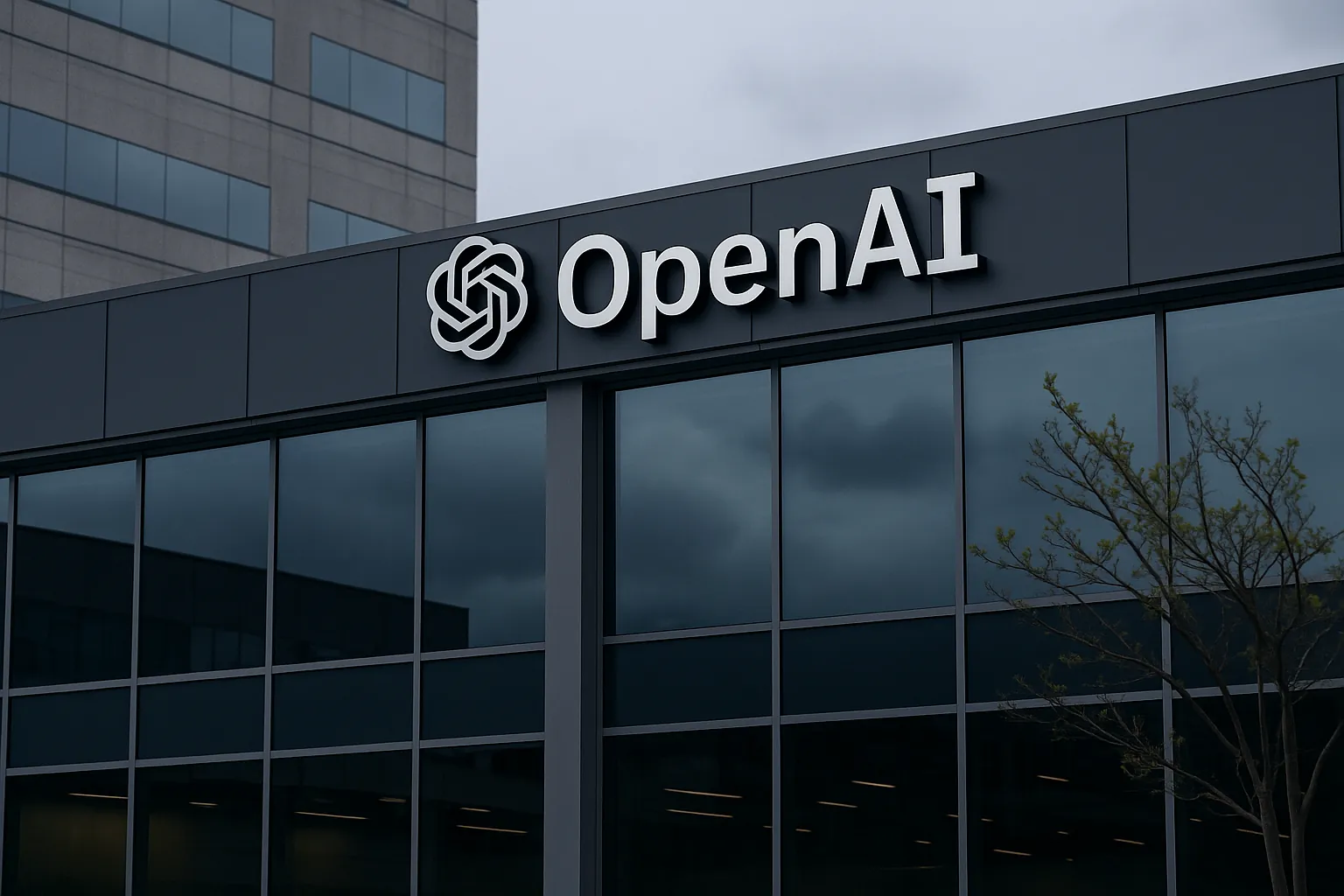OpenAI’s announcement that ChatGPT will soon allow verified adult users to generate erotica has sent shockwaves through Silicon Valley. The phrase “ChatGPT erotica policy” is no longer just a rumor whispered among AI enthusiasts — it’s a public declaration of a cultural and corporate shift.
For the first time, a major AI company is admitting that human imagination cannot be sanitized forever. But is this liberation of creative expression, or the start of a dangerous gray zone where technology and desire intersect?
Context: From moral fortress to creative frontier
For years, OpenAI built its empire on safety and restraint. Its flagship product, ChatGPT, famously refused to write even mildly suggestive content. The company’s “alignment” teams imposed hard rules designed to protect against harassment, explicit material, and anything deemed unsafe.
That era is ending.
OpenAI confirmed that it will soon enable a verified 18+ mode, allowing adult users to generate erotic fiction, romantic fantasy, and other forms of consensual creative writing. Executives insist that the system will still block non-consensual or illegal material — but the creative boundaries will widen dramatically.
According to CNN, internal sources describe this as part of a broader “trust evolution,” aiming to treat adults like adults. After years of pressure from writers, artists, and free-expression advocates, the company seems ready to confront the question Silicon Valley avoided: can AI coexist with adult creativity?
Oppositional Argument: Freedom or corporate experiment?
The mainstream narrative celebrates OpenAI’s move as progress — a triumph of artistic freedom. But let’s be honest: this decision isn’t just about creativity. It’s about control.
“ChatGPT erotica policy” is not a moral victory — it’s a calculated business strategy.
OpenAI knows what drives engagement. After all, human storytelling has always revolved around desire, love, and taboo. By unlocking this domain, OpenAI expands ChatGPT’s appeal to millions of paying users — particularly writers, roleplayers, and fans of interactive fiction.
Yet, behind the rhetoric of freedom lies a quiet monetization plan. Verified adult mode will likely become part of premium subscriptions, with OpenAI gaining access to new user data and behavioral analytics. Erotica is not just content — it’s engagement gold.
The question isn’t whether this change is moral or immoral. It’s whether OpenAI can be trusted as the gatekeeper of human intimacy in the digital era.
Analytical Breakdown: Innovation versus responsibility
Every technological revolution walks a fine line between liberation and exploitation. The ChatGPT erotica policy epitomizes that tension.
From a technical perspective, creating erotica safely requires immense nuance. The model must differentiate between consent-based storytelling and harmful or illegal material.
This means embedding sophisticated classifiers that understand tone, context, and consent — a challenge even humans struggle with.
OpenAI claims it has “new moderation layers” capable of recognizing non-consensual or exploitative themes. But such moderation has already failed in other contexts — from disinformation to deepfake porn. The company’s trust relies on algorithms interpreting morality, an inherently subjective domain.
Economically, the move could redefine the content market. Adult creative industries generate over $100 billion globally, mostly outside the mainstream internet. If OpenAI successfully captures even 5% of that ecosystem, it could revolutionize the way digital intimacy is created and consumed.
But ethical risk remains massive. The line between consensual fiction and exploitative simulation is razor-thin — and once blurred, impossible to redraw.
Human Perspective: The users behind the controversy
For many adult writers, this change is a long-overdue recognition of creative equality. “We’ve been treated like criminals for writing romance or fantasy that involves intimacy,” says a self-published author who has relied on ChatGPT for world-building but constantly battled censorship filters. “This isn’t about porn. It’s about reclaiming creative freedom.”
Artists echo similar sentiments. Visual AI tools like Midjourney and Stable Diffusion have already explored artistic nudity and sensuality under limited conditions. Now, ChatGPT’s policy brings text-based art into the same debate.
However, safety advocates worry about the broader implications. Will users simulate real people? Will fictional consent blur into emotional manipulation?
OpenAI’s executives insist they’ll use age verification, reporting tools, and metadata logging to prevent abuse. But privacy experts warn that the more users share their fantasies, the more valuable — and vulnerable — their data becomes.
Counterarguments
Defenders of OpenAI’s approach argue that repression creates danger, not freedom. They point out that by allowing adult erotica under clear rules, OpenAI can reduce unsafe behavior by offering a controlled environment. In other words, better to have ethical erotic storytelling than uncontrolled deepfake porn.
Critics, however, counter that the company’s track record on data transparency remains shaky. OpenAI has yet to provide clear guidelines on whether “adult mode” interactions will be used to train future models. If they are, erotic content could one day shape the intelligence of future GPT systems — a concept that unsettles ethicists and engineers alike.
The deeper issue is philosophical: can AI truly separate expression from exploitation? If a machine learns from human fantasy, does it also inherit our biases, power structures, and moral flaws?
The Silicon Valley context: hypocrisy and timing
OpenAI’s decision doesn’t exist in a vacuum. It reflects a growing cultural clash in Silicon Valley.
On one hand, Big Tech preaches responsibility and “trust and safety.” On the other, it chases profit and engagement.
Meta relaxed nudity restrictions for art and journalism. X (formerly Twitter) allows adult content openly. Startups like Replika and Bloom have built entire business models around intimate AI companionship.
OpenAI was the last holdout — until now.
Why now? Insiders suggest multiple motives. First, user growth has plateaued. ChatGPT’s peak virality in 2023 has faded, and competition from Anthropic’s Claude, Mistral, and Google Gemini forced OpenAI to reinvent engagement. Second, OpenAI faces an image problem: accusations of censorship, political bias, and “moral gatekeeping.”
Allowing erotica may rebrand ChatGPT as the platform of creative freedom — a seductive narrative in every sense.
But here lies the paradox: the company that once banned poetry with the word “kiss” now invites explicit creativity. It’s both a revolution and a rebranding.
The cultural dimension: from prudishness to digital realism
Human culture has never been prudish in private, only in public. Ancient art, literature, and theater celebrated desire. What’s new is that digital platforms now mediate that desire through code.
The ChatGPT erotica policy acknowledges a truth society has long denied: adult creativity isn’t inherently harmful. Suppression breeds shame; openness breeds understanding — if handled responsibly.
Still, OpenAI must navigate treacherous waters. Feminist critics argue that erotic AI could reinforce gender stereotypes or objectify users. Psychologists warn of emotional displacement — users forming attachments to AI personas. Religious conservatives will predict moral collapse.
But for creative communities, this is liberation. Writers of LGBTQ+, fantasy, and romance genres have already begun preparing to test the boundaries of this new frontier.
Insider Insight: What’s really happening inside OpenAI
Leaked internal discussions reviewed by several tech reporters hint at divisions within the company. Some engineers reportedly opposed lifting adult restrictions, warning it could “undermine model integrity.” Others argued that censorship was driving users to competitors.
A senior OpenAI staffer allegedly told colleagues, “If we don’t own adult AI creativity, someone else will — and they’ll do it without ethics.”
The internal consensus: better to lead the narrative than chase it.
Sources suggest OpenAI may introduce tiered moderation, with custom “consent layers” that users can configure — allowing them to define what themes they’re comfortable exploring. This would effectively make ChatGPT a customizable creative environment, blending art, therapy, and eroticism under one roof.
If true, it’s revolutionary — but also terrifying. Because once desire becomes data, no boundary remains sacred.
Conclusion: The machine learns what we desire
The ChatGPT erotica policy is more than a feature update. It’s a mirror held up to humanity.
It asks whether we’re mature enough to coexist with machines that reflect our most intimate impulses.
OpenAI is betting that the answer is yes — that adults can handle adult creativity responsibly. But history suggests otherwise: every time technology meets desire, chaos follows before clarity.
Still, this shift might be inevitable. The repression of human expression under the guise of “safety” has never worked. Now, artificial intelligence steps into the oldest story ever told — the one about curiosity, temptation, and consequence.
Whether this is liberation or manipulation depends not on the machine, but on us.






